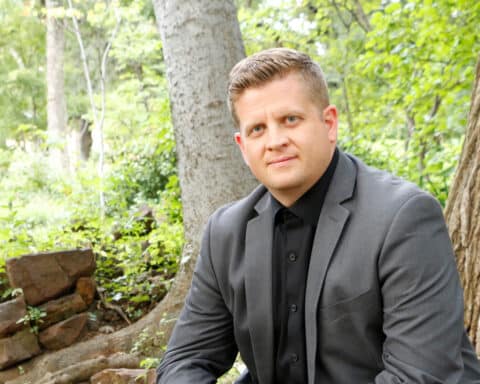It’s the judgmentalism that’s so startling. Starting a new job a few months ago — a job I love but one that requires long, intense days — I stopped going on Facebook very often. And when I do, oh boy, the amount of energy people put into telling other people how wrong and how awful they are. It’s modern Catholic witch-hunting. The witch-hunters excuse it by saying they’re only telling the truth that must be told.
The judgment comes from all sides. Some Catholics call other Catholics “heretics” and accuse them of worldliness and wanting to be approved by the world, or of trying to subvert the Church and her teaching. Some of the other Catholics call the first set “MagaChristians” and (sarcastically) “the greatest Catholics of all time,” and accuse them of being heartless and cruel, also foolish and stupid.
As it happens, I’ve gotten accused from both directions. I should say, though, that earlier in my life, I would have been among the witch-hunters. Life had to beat on me for a while before I began to see how little denouncing people did to change them and how bad it was for the people doing it. I was blessed that social media didn’t arise until I was into staid middle age.
To give an example from a few years ago, Pope Francis told parents of LGBT children, “The Church loves your children as they are, because they are children of God.” Some Catholics came unglued. They don’t seem to understand how love works, or they forget it when they’re looking at this one group of people.
As one of the writers these people adore said (slightly paraphrased), “A man’s friends like him and want him to stay the same. A man’s wife loves him and wants him to change.”
That was Chesterton, who did understand how love works. It is literally true that we love our loved ones as they are. The pope spoke the simple truth. And the closer the relationship, the worse they can be and still be loved. Parents will love and suffer for the child to whom amily and friends no longer speak. And not because they don’t see his sins, but because he’s their child.
The Church, as the Body of Christ, is the perfect parent, the one who loves purely and without giving up on the child. The Church loves them as they are, because they are the Father’s children, and the children of the Blessed Mother, and sisters and brothers of the Lord. Love doesn’t mean anything if it’s not love for who you are despite what you are.
But as with human parents, love doesn’t mean approval. The Church remains unsatisfied with her children — all her children, including those of us who try to dot our i’s and cross our t’s, because she loves them and they are not (with rare exceptions) what they should be, not all they could be, not as free and happy as they could be, not saints. Like the wife in Chesterton’s quote, she loves them as they are, and she wants them to change.
And as in a family and in a marriage, how the parent or the spouse encourages the other to change is a delicate matter. It varies greatly from person to person. But good parents and spouses know that simply saying, “You’re doing the wrong thing” over and over doesn’t work. Even saying “I love you, and I must tell you you’re doing the wrong thing” doesn’t work.
Helping someone change, to the extent you can, takes time and patience and continual applications of love. You have to make sure the person knows you are unconditionally on his side and that you will be with him for as long as it takes.
He is the way he is for reasons, which may go very deep, and mix good and bad, and may be the results of sins committed against him. His faults and sins will take pain and effort to see, much less to change. Even St. Paul lamented that the good that he wanted to do, he didn’t do, but the evil he didn’t want to do, he did.
He also has to see that you’re engaged in the same effort. As you’re trying to move someone to change, you must be working even harder on moving yourself to change. You need to draw spouses, children and friends into a new way of living, because you’re living somewhat that way yourself.
You can’t shove them into it. I know that from my experience of being a father, who did some drawing but too much shoving and eventually realized which one worked.
Yes, real love tells the truth. But telling the truth doesn’t in itself indicate real love. Real love knows how to tell the truth, and when, and in a way it might be heard, and also turns the truth on itself.
David Mills writes from Pennsylvania.





